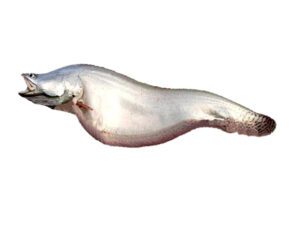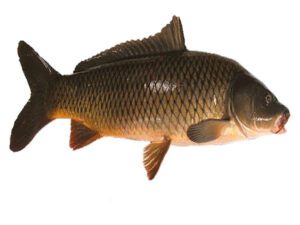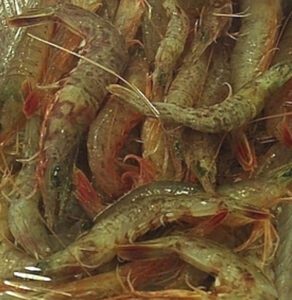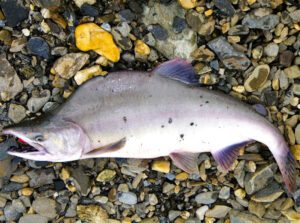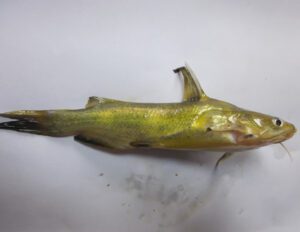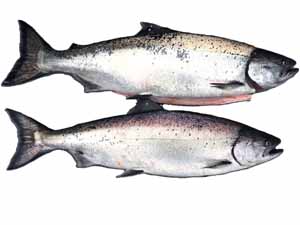Fish eggs are a very common and popular food item in many cultures and countries around the world. Fish eggs are also called Roe, and are collected from female fish in many different ways. Some of the eggs are collected during fishing. The eggs are taken from the female fish very carefully after catching. The process is done very carefully to ensure that the fish can still reproduce.
Some fish eggs are also collected from commercial fish farms. In commercial fish farms, the female fish are raised in controlled environments. Then the eggs are collected from the fish for using in many different purposes. But, most commonly the eggs are mainly used as food.
Fish eggs are a very popular and valuable food source for humans in many countries and cuisines around the world. They are rich in nutrients and are very beneficial for human health. They are especially rich in protein and omega-3 fatty acids, and also contain some important vitamins and minerals.
Preparing the fish eggs for using as food is very easy and simple. Just rinse the eggs gently to remove any impurities. Depending on the type, the eggs may be salted or cured for enhancing their flavor and preserving them. You can also keep the eggs in refrigerator or freezer for keeping them fresh. The eggs of fish are very tasty and you can prepare the eggs in many different ways.
What are fish eggs?
Before discussing more, let us first explain what fish eggs actually are. As the name suggests, the fish eggs are actually eggs laid by female fish. The eggs are tiny, round, or oval-shaped balls that contain the developing embryos of fish. They are found in many types of fish and are generally eaten in various cuisines and countries around the world.

Fish eggs name
Fish eggs come in various types. And each type has its own distinct name and characteristics, but their most common name is “Roe”. Eggs from the sturgeon are called “caviar” or “sturgeon roe”. Salmon fish’s eggs are called “ikura” or “salmon roe”. Eggs of flying fish are called “Tobiko”. Capelin is a type of small fish and the name of their eggs is “Masago”. Eggs of the herring is called “herring roe”. And eggs from pollock fish is called “pollock roe”.
Uses
The eggs of fish are mainly used as food. It is a common item in many cuisines and cultures around the world. The eggs are also used for reproduction purpose.
Cooking
Fish eggs can be cooked in many different ways. Some popular ways for cooking and enjoying these eggs are pickling, grilling, and pan-frying. But not all the eggs are suitable for cooking in the same way. For example, the caviar, ikura, tobiko and mosago are often consumed raw. Herring roe is often used for pickling. Pollock roe and herring roe are generally used for grilling. The pollock roe and herring roe are often used for grilling. Pollock roe and capelin roe are used for pan-frying. And various types of fish roe can be enjoyed by mixing into dishes like salads, pasta, or rice bowls. Most popular cooking ways are:
Grilling: You can grill the fish eggs on skewers or in a grill pan. This cooking method gives the eggs a smoky flavor and is great for outdoor cooking.
Pan-frying: You need a small amount of oil for pan-frying the eggs of fish. Lightly pan-fry the eggs and serve. Pan-frying method adds a crispy texture while keeping the eggs tender inside.
Baking: Baking is also an another way for enjoying the eggs of fish. You can bake the eggs as part of casseroles or other baked dishes. Baking is a less common method but can be used to incorporate fish eggs into different recipes.
Adding into other dishes: Fish eggs can be enjoyed by mixing them into several dishes like pasta, salads or rice bowls. These eggs add texture and flavor to a variety of recipes.
Recipes
There are actually many different dishes and recipes available in many countries and cultures throughout the world. Some popular recipe ideas using fish eggs are:
Sushi rolls: For preparing sushi rolls, you will need sushi rice, seaweed, fresh fish, and fish roe. Prepare the sushi rice and lay it on a sheet of seaweed. Add fish and fish roe, and then roll tightly. After that slice and serve with soy sauce.
Caviar on toast: You will need caviar, toast or blinis, crème fraiche for preparing this recipe. Toast slices of bread and spread a layer of crème fraiche on top. And then add a spoonful of caviar and serve immediately.
Herring roe salad: For preparing herring roe salad, you will need pickled herring roe, mixed greens, onions, and a vinaigrette dressing. Toss mixed greens with onions and vinaigrette. Then top with pickled herring roe and serve.
Masago pasta: You will need cooked pasta, mosago and cream sauce for preparing masago pasta. Cook the pasta first and toss it with a cream sauce. Stir in masago just before serving for a burst of flavor and texture.

Nutrition
Fish eggs are highly nutritious and good for human consumption. They are a good source of protein, omega-3 fatty acids (including EPA and DHA), vitamins and minerals. They are a good source of vitamin A, vitamin D and B vitamins. They are also a good source of some essential minerals such as calcium, iron, and phosphorus. Some fish eggs contain antioxidants. Exact nutritional value of the eggs can vary depending upon the fish.
Approximate nutritional values per 100 grams serving of caviar are about 250-300 calories, 30 grams protein, 15-20 grams of fat and various vitamins and minerals. 100 grams ikura provides approximately 200-250 calories, 20 grams of protein, 10-15 grams of fat and good amounts of vitamin A, vitamin D and omega-3 fatty acids. And a 100 gram serving of tobiko provides around 150-200 calories, 10 grams of protein, 5-10 grams of fat, with moderate amounts of vitamin A, vitamin D, and omega-3 fatty acids.
Health benefits and considerations
Consuming fish eggs is beneficial for health. Both raw and cooked eggs are an excellent source of high-quality protein and they are also rich in omega-3 fatty acids. Omega-3 fatty acids help to support heart health by reducing triglycerides, lowering blood pressure, and decreasing the risk of heart disease. These eggs are also very good source of some essential vitamins which are very helpful for various bodily functions.
Fish roe are great source of vitamin A, vitamin D, and B vitamins. They are also rich in some minerals such as calcium, iron and phosphorus. All these minerals are essential for improved body functions. Consumption of fish eggs help to promote healthy skin and hair, boost immune system and support cognitive function.
You should consume fish eggs in moderation, as they have several health considerations. Some fish eggs (especially salted or cured eggs) can be very high in sodium, and consuming too much eggs can result several health issues. Some people are also allergic to fish eggs, and they should avoid eating the eggs.
Taste
Taste of fish eggs depends on the type of fish. They have distinct flavors and textures that vary by type of fish. For example, caviar offers a rich, briny taste with a creamy texture. Ikura has a bold, salty flavor and is juicy. Tobiko provides a mild and slightly sweet taste with a crunchy texture. Herring roe tends to be salty and can be tangy if pickled. Pollock roe is mildly sweet and slightly chewy. Masago is similar in taste to tobiko, but is milder.
Price
Exact price of fish eggs vary widely depending on the type, location, quality and source. Approximate price of different types of fish eggs in the United States are:
Caviar: Between $100 to $500 per ounce.
Ikura: Between $20 to $60 per 100 grams.
Tobiko: Between $15 to $30 per 100 grams.
Masago: Between $10 to $25 per 100 grams.
Herring roe: Between $20 to $40 per 100 grams.
Pollock roe: Between $15 to $30 per 100 grams.

Where to buy fish eggs?
You can purchase fish eggs from a variety of sources. You can purchase from your local fish and seafood markets, specialty grocery stores, Asian markets, restaurants, online specialty stores and also from online retailers.
